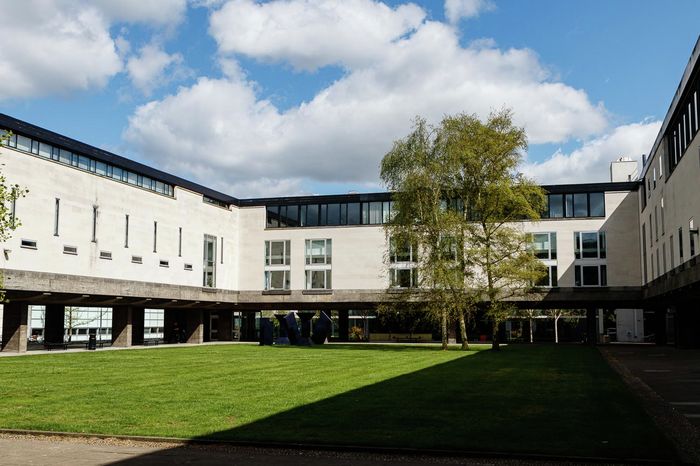Laboratories prepare protocol for partial reopening amid uncertainty for PhD students
Varsity has spoken to PhD students about laboratory access restrictions as the University plans to begin to allow some buildings to reopen at 25% capacity

After two months of the University’s closure, Vice-Chancellor Stephen Toope reiterated in an email today (21/05) that “working remotely remains the default position for those who can do so – including postgraduate research students.” He assured that “a protocol of the return of research students will be ready soon.”
Varsity understands that researchers tried to return to University workplaces following the confusion arising from Boris Johnson’s lockdown speech on 10th May.
Research facilities were among the many buildings which were shut down when the University proceeded into ‘red phase’ in March. This has especially impacted PhD students who require laboratories in order to conduct research for their degrees. Like many others, science-based PhD students have resorted to home working, and many feel that they have been unable to make significant progress on their work during this time.
In an interview earlier this week, Graham Virgo, the Pro-Vice Chancellor for Education, announced that laboratories for PhD students could re-open as early as June.
A University spokesperson told Varsity that “the University has put a protocol in place for the phased re-opening of research-related buildings and laboratories, so that our research and related activities can continue in a way that prioritises the health and safety of our staff and students, and is in line with government guidance.”
The re-opening of individual buildings will be confirmed “once they have been judged safe to occupy, and procedures for safely carrying out research activities in the building have been put in place”.
Last week, Stephen Toope explained that research facilities will most likely operate at around 25% capacity once they reopen.
When asked about this capacity policy, some PhD students expressed concern that it would be difficult to effectively abide by safety guidelines in laboratories. Daniel Sowood, a second-year PhD student in Optoelectronics, stated that protocols would need to be in place to continuously clean shared equipment like computers. He mentioned that his laboratory is too small to allow for a two-metre distance from other people, so he suspects that a rota system might be introduced.
An Tran, a PhD student in Plant Sciences, said that these measures would be quite restrictive as students who usually spend whole days in laboratories might only have access for a few hours at a time. She proposed, however, that “it is a good compromise for now otherwise we wouldn’t be able to do any lab based PhD work at all.”
Accommodation is another major concern for PhD students. Even if laboratories re-open, it is not yet clear when University accommodation would become available for students. Tran has been informed that her college, Wolfson, is working on ways that students can safely return to accommodation. Some students who lived in colleges before they were encouraged to leave in March have considered renting privately in the event that laboratories reopen before college accommodation.
Others who are not currently in the UK worry about the feasibility of their return to the University. Corrado Mazzaglia, a PhD student currently in Italy said that he will “probably have to self-isolate” upon his return to the UK but has not yet received any further information on this. The Government has not yet clarified what the UK quarantine policy will entail.
The University’s guidance page for postgraduate students recommends that students who are unable to continue work from home should consider non-medical intermission or applying to extend their deadlines in the case that they require more time.
However, intermission implies several difficulties for some. Sowood said that intermission could be a very isolating experience and losing the remaining resources he currently has access to “would be quite a crushing blow”. Tran, who is an international student on a Tier 4 Visa, expressed concern that intermitting might mean she would lose her student visa or that her funding would be stopped.
Government guidance indicates that Universities do not need to report the absence of students on Tier 4 visas if they have been displaced as a result of Covid-19. Whilst the University’s Covid-19 guidance webpage mentions Tier 2 and Tier 5 visas, it does not provide advice for students in Cambridge on Tier 4 visas.
PhD students often have funding allocated for a specific length of time, usually three or four years. Inability to conduct PhD research for consecutive months can thus raise longer-term financial concerns.
Earlier this week, Virgo assured that the University is currently working on a protocol surrounding funding issues. He explained that he had spoken to Cambridge-based funding bodies including the Cambridge Trust and financial hardship issues would be reviewed on a case-by-case basis.
PhD students who applied for ‘leave to work away’ when instructed to leave Cambridge in March received confirmation emails stating that they must return to Cambridge by 1st July.
 Comment / Plastic pubs: the problem with Cambridge alehouses 5 January 2026
Comment / Plastic pubs: the problem with Cambridge alehouses 5 January 2026 News / Cambridge academics stand out in King’s 2026 Honours List2 January 2026
News / Cambridge academics stand out in King’s 2026 Honours List2 January 2026 News / Cambridge businesses concerned infrastructure delays will hurt growth5 January 2026
News / Cambridge businesses concerned infrastructure delays will hurt growth5 January 2026 News / AstraZeneca sues for £32 million over faulty construction at Cambridge Campus31 December 2025
News / AstraZeneca sues for £32 million over faulty construction at Cambridge Campus31 December 2025 Interviews / You don’t need to peak at Cambridge, says Robin Harding31 December 2025
Interviews / You don’t need to peak at Cambridge, says Robin Harding31 December 2025









